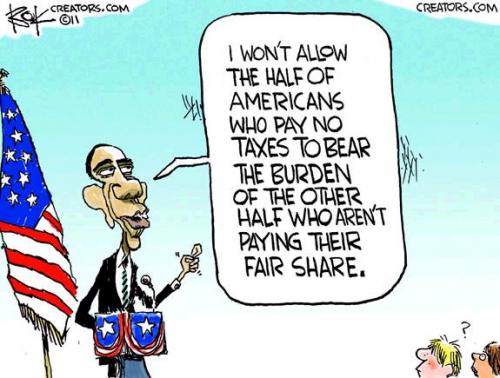If we are to Change the Debt Ceiling, Lower It
Sunday, July 31st, 2011 12:06 am by mikeinvaldostaWith all the debate and rancor over the debt ceiling reality has been shoved down Alice’s rabbit hole. President Obama now talks of indirect taxes in reference to the effect higher interest rates will have on America. In fact, the reality is, higher interest rates only effects borrowers. The de-valuation of the dollar affects all spenders of American currency.
A down-grade in American debt is sure to cause interest rates to rise on all borrowers. Whenever the government competes with the private sector in the dollars for loan market, interest rates will rise. The reality is, interest rates would have already risen had it not been for two major factors. First, the private sector has no appetite for risk. Taking a loan means incurring risks. Second, 70% of the Federal government debt issued in June was purchased by the U.S. Treasury with newly printed money, a practice known as monetary easing. 70% of the demand for U.S. debt was the U.S. Treasury.
Quantitative easing lowers interest rates. This is a good thing for borrowers. Central planners (Marxists or Keynesians) believe this will spur economic activity in the private sector. In a stable political and regulatory environment this may be true. In an activist environment with new and increasingly burdensome regulations on the private sector, the free markets (capitalists) take a wait and see attitude.
An undisputed fact of quantitative easing is the devaluing of the newly printed currency. In our case, for every dollar the Federal Government is borrowing, it must print new money for 70% of that borrowing. With each new dollar printed, every dollar in your savings account or 401K is devalued. In a global economy where commodities are valuated in US Dollars two types of people feel the effect of quantitative easing, those that loan the United States government money, and the citizens of the United States.
Pick any globally traded commodity you like, overlay a chart of the United States Dollar index on top of that commodity. You will quickly see the relationship the drop in the dollar has with our purchasing power as Americans. 3rd world dictators have resulted to inflating their way out of debt for many decades. Is that the proper course for the United States of America?
Believing the status quo, quantitative easing, is a punitive tax on all holders and spenders of US Dollars, let’s examine the alternatives.
Default. Default is not really an option. The Federal government brings in more than sufficient revenues to service its debts. The Federal government brings in more than enough revenues to service its entitlement payments, military obligations, veterans benefits and all other mandatory obligations. What gets paid and what goes unpaid will be a political decision made by the president and his tax cheating Treasury Secretary.
Default will force the Federal government to pay higher interest rates. This will have a dynamic effect in out years on the deficit. This will cause private sector borrowers in competition with the Federal government to pay higher rates on their borrowing.
Default will also benefit responsible citizens. Default will benefit responsible citizens that live within their means. Default will benefit responsible citizens that save their money. Default will benefit responsible citizens that place their money in money market accounts. Default will benefit responsible citizens that purchase Certificates of Deposit. Default will benefit citizens that purchase the Federal government’s debt.
The other option is to cut spending. This is an option that benefits all holders of US debt and spenders of US currency. A tightening of the money supply, otherwise known as the US Treasury shrinking its balance sheet, would strengthen the dollar, enabling all holders of the greenback to purchase more with their hard earned, or government provided, dollars.
Given the three choices; let Obama continue to spend unchecked, let the country default, or reign in spending and get our country and our currency on solid footing, there is no way in hell I would ever vote to raise the debt ceiling.







